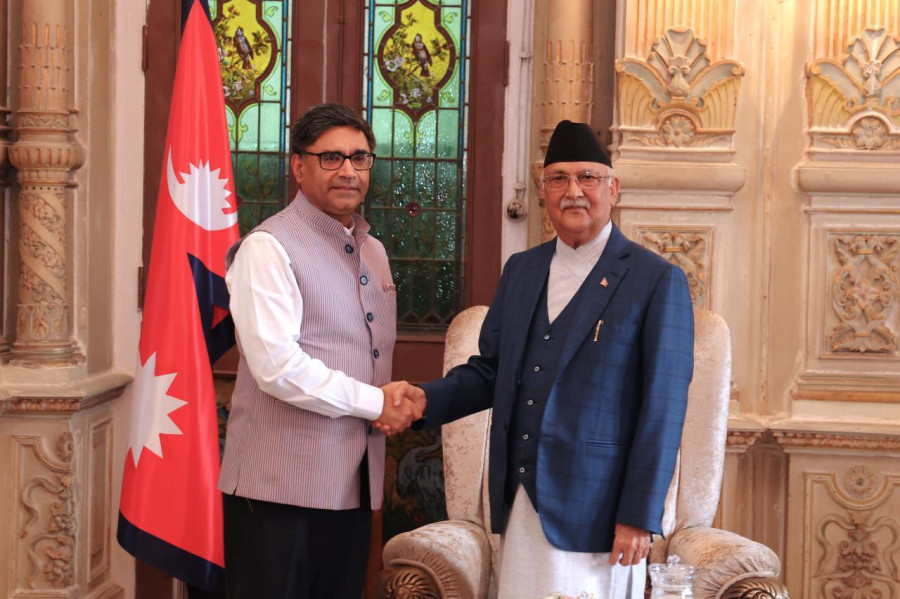Editorial
Old lens, new reality
India missed the winds of change in Bangladesh. It should not repeat the same mistake in Nepal.
India’s new foreign secretary Vikram Misri returned to New Delhi on Monday after a 32-hour whirlwind tour around Kathmandu. Not much was expected of the visit, as it was supposed to be a courtesy call, a continuation of the tradition of Indian foreign secretaries visiting neighbouring countries after their appointment. So there were no significant breakthroughs in outstanding issues—just an exchange of pleasantries and congratulations over chiya-kaffee. A rendezvous with no agenda is a good thing once in a while—after all, neighbours can’t just engage in geopolitical hard talk all the time. However, here’s wishing the visiting dignitary had some time to step out of the prime ministerial and presidential chambers onto the streets. For the monsoon-battered, puddled roads reflect reality better than the glossy floors of Baluwatar and Sheetal Niwas. Having recently seen a diplomatic whodunnit in Bangladesh, Indian Babus would certainly want to touch base with ground reality in the neighbourhood.
Nepal and Bangladesh have different political contexts, including in terms of parliamentary politics. Having faced Sheikh Hasina's seemingly tight grip on state affairs for over a decade and a half, Bangladeshis were fidgeting for a change as democracy was on the wane. With 13 government changes in 16 years, Nepal remains committed to democracy although Nepalis are looking for a change, seeking stability. India remained tight-lipped on the goings-on in Bangladesh even as Hasina sought a fourth consecutive term this January by keeping opposition leaders behind bars. Apart from being the biggest trade partner in South Asia, Bangladesh was a “friendly” nation to India, thanks to Hasina’s indebtedness to India from 1971 all the way to 2024. As long as the person of its liking was in power in Dhaka, India chose to remain silent to the calls for democracy, free press and fair elections in Bangladesh, only to jolt back to reality when the tide of change swept Hasina off her feet, and the comfort of dealing with a friendly ruler in the neighbourhood became a thing of the past.
Luckily for Misri, things are not too bad in Nepal. But when was the last time a top Indian diplomat spoke about the report of the Eminent Persons Group that is collecting dust due to Prime Minister Narendra Modi’s reluctance to so much as acknowledge it? When will India acknowledge Bhairahawa Airport as Nepal’s major development infrastructure and provide the air space for it to operate fully? And when will the Babus in New Delhi’s North Block stop using the language of Nepal, a supposed backyard of India, being taken over by China? When Misri returns to Nepal for a definitive diplomatic visit, he would want to come up with some fresh ideas and spend a bit more time to understand the subterranean tides of change. Nepal might have been ruled by old leaders milking their legacy of the 1990s politics when Misri was still a young foreign services officer in India, but the old Indian lenses used to look at Nepal now need replacing.




 8.54°C Kathmandu
8.54°C Kathmandu














